Are you a highly anxious person? I’m one, and I hate it. So, I’m always looking for ways to find anxiety relief.
Anxiety, like stress, is one of those “silent killers” that wears us down slowly, day by day. It also makes life harder and more unpleasant than it has to be. From the butterflies in our stomach before a big event to that constant tension of everyday modern life, it’s something that all of us would do well to reduce.
But how do we do that? Well, it turns out that science and experience have discovered many effective ways to treat anxiety, from sources as diverse as modern medicine to Eastern wisdom. Most take very little effort to put into practice, and have proven and lasting benefits.
So, let’s check them out, get a handle on that anxiety, and be on our way to happier and healthier lives!
Powerful and Effective Ways to Find Anxiety Relief
Natural Ways to Relieve Anxiety
I’ll be the first to say that I’ll avoid pharmaceuticals to the extent possible, especially for psychological issues like anxiety. The idea of altering my brain with chemicals from big pharma and creating a possible lifelong dependency doesn’t sound too great, so I’d only consider it as a last resort (though of course, they can be effective and necessary for those that truly need them, and there’s no shame in seeking needed treatment).
On the other hand, there are natural substances out there that many of us already consume, and which have been found to have potential in treating anxiety. Here are three.
Take Fish Oil (Omega-3) Supplements
Let me start with the cutting edge in anxiety relief. Recent studies indicate that Omega-3 fatty acids might help reduce the symptoms of anxiety. Specifically, scientists concluded that “people with clinically diagnosed anxiety disorders who took large doses [about 2,000 milligrams a day] benefited most” (The New York Times).
So if you’re an anxious person (especially if you have high anxiety), it would probably be a great idea to start taking Omega-3 supplements (specifically, those with less than 60% EPA). They’re very good for you anyway, so they’re bound to help somehow.
Drink Chamomile Tea
Tea has many benefits, including, probably, anxiety relief. In particular, researchers at the University of Pennsylvania found that “…chamomile may have modest benefits for some people with mild to moderate GAD [Generalized Anxiety Disorder]” (National Institutes of Health).
Personally, I drink chamomile tea a few times a week, and find that it does have a mild calming effect. So I think it’s a great idea to consume it regularly; go ahead and make yourself a cup!
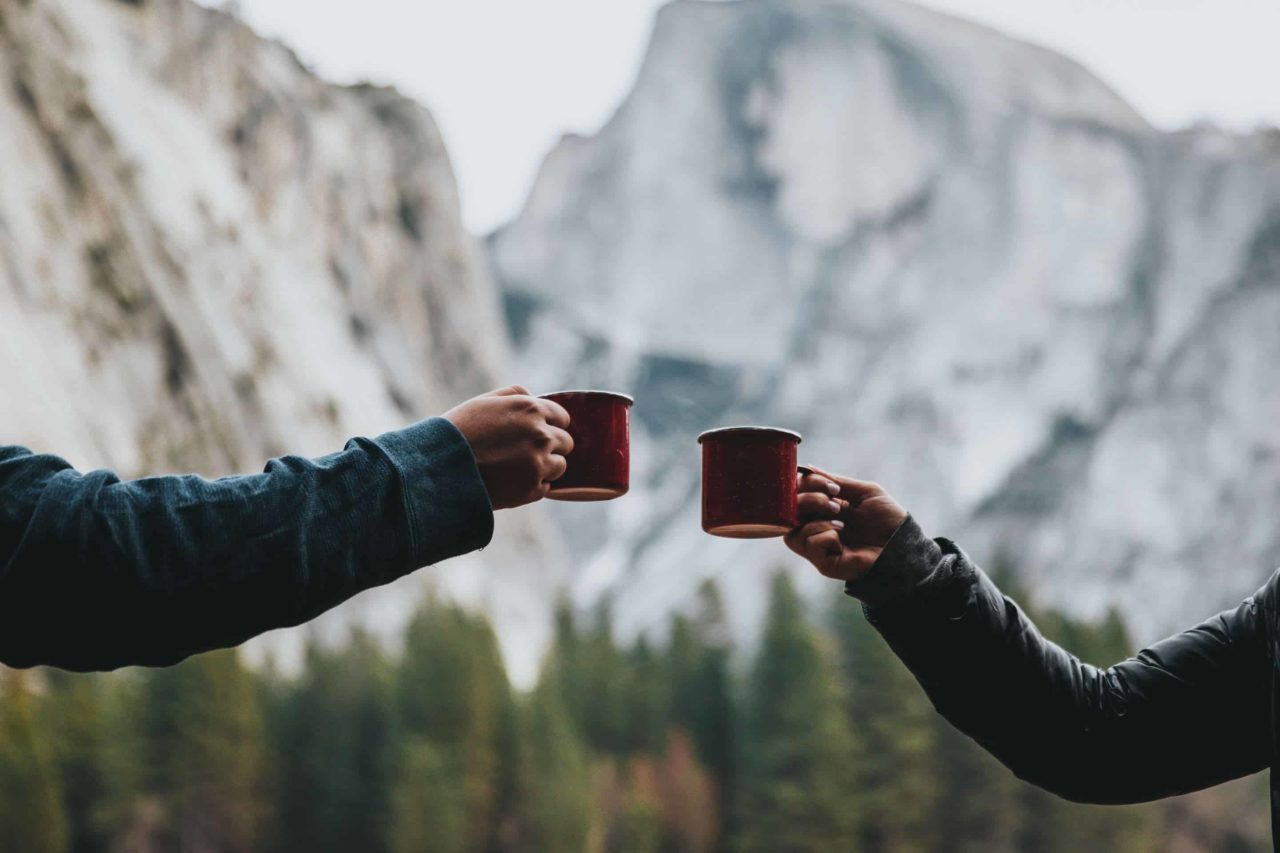
Tea with a view
Moderate, Low-Level Drinking
If you can keep your drinking at a moderate level, I think we all know that it can help in terms of anxiety relief. The catch is that you cannot be an alcoholic or drunk; I’m talking about low-level, controlled drinking.
As Healthline puts it, “[t]here’s some truth to the idea that alcohol can reduce stress. Alcohol is a sedative and a depressant that affects the central nervous system…It can help you feel less shy, give you a boost in mood, and make you feel generally relaxed. In fact, alcohol’s effects can be similar to those of antianxiety medications”.
Moreover, “[o]ccasionally unwinding with alcohol isn’t necessarily dangerous if your doctor approves. But once you start drinking, you can build a tolerance to the de-stressing effects of alcohol. This can make anxiety and stress even more difficult to cope with” (Healthline).
If you have any doubts about your ability to control your drinking or have had problems with it in the past, please don’t start doing it as an anxiety treatment. However, if you’ve always been able to control it, I don’t think there’s anything wrong with having an occasional drink to wind down after a tough day.
Strategic Remedies for Anxiety
Reduce Sources of Anxiety
Take immediate steps to eliminate sources of anxiety in your life to the extent that you can. For those that you can’t remove right away, make long-term plans to reduce them.
For example, if you’re anxious about money, see where you can cut spending and increase investments immediately. Beyond that, make long-term plans to either spend less or make more, be it by moving to an area with a lower cost of living, earning an advanced degree, or any other way that works for you.
This will relieve your anxiety in at least two ways. First is the obvious: if you eliminate a source of anxiety right away, you’ll be less anxious. But also, just knowing that you’re on your way to solve a problem in your life will have a calming effect, since you’ll know that you’re on the right track, steadily moving towards a goal.
Control Your Smartphone for Quick Anxiety Relief
I have a love-hate relationship with my smartphone. I love all that I achieve with it and how efficient it makes me, but I hate the constant notifications!
It’s something I’ve just recently begun to get a grip on, and which has had an excellent effect on my anxiety levels. Here are some steps you can take:
- Have your phone on vibrate mode, pretty much permanently.
- Turn off “push” notifications as much as possible (those notifications that jump out at you).
- Unsubscribe from every mailing list that is not adding anything positive to your life.
- Take 10 minutes to set up folders for e-mails that you need to receive, but not read.
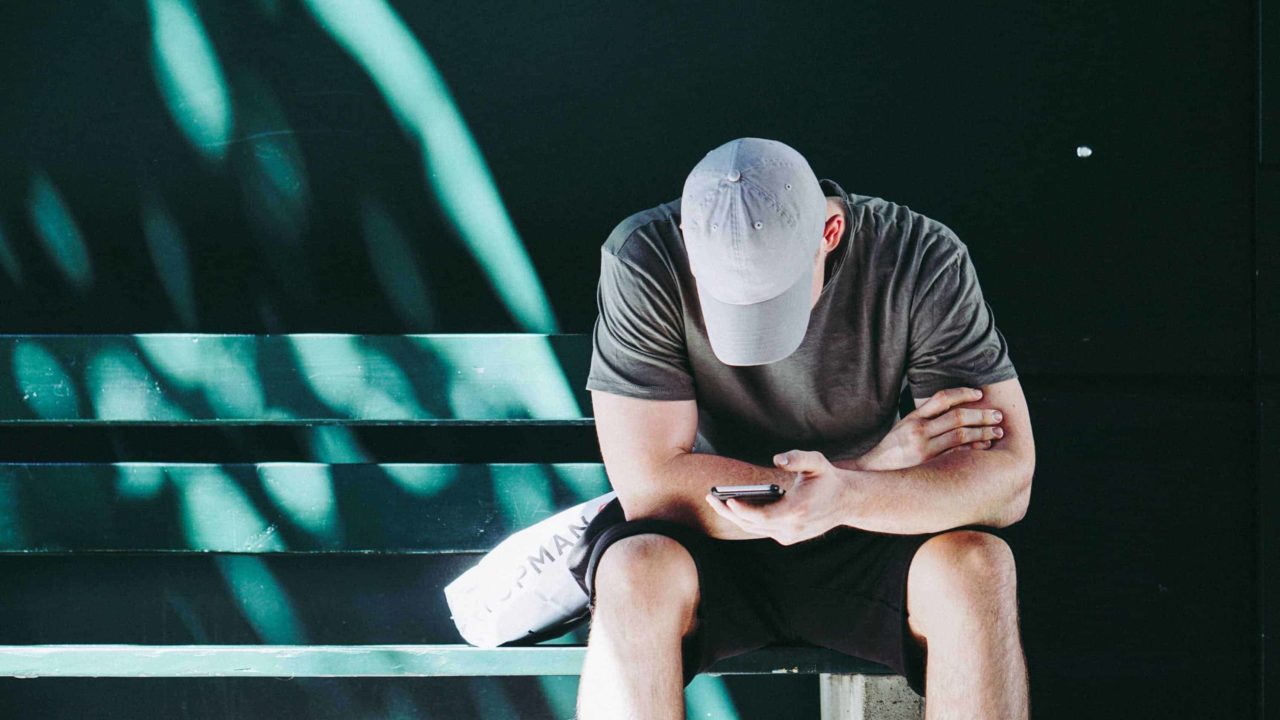
Don’t let it control you
Step Away From Toxic Relationships
Some people are probably doing you more harm than good. I know you can’t just expel everyone like that from your life overnight, but you can help yourself cope with anxiety by making a conscious effort to distance yourself from them over time.
So if you have “friends” that are not treating you like you deserve, call them less often. Be a little standoffish, and let the “friendship” fade over time. The same goes for toxic family members – stop seeking them out, and let the passage of time put some distance between you.
Reduce Anxious Persons’ Access to You
This is one is especially applicable to your work life. The modern workplace makes people very stressed, and many deal with it by unloading their high anxiety on others.
Handle this by limiting their access to you. For instance:
- Don’t be available all the time; don’t answer e-mails right away if not necessary, and don’t have lunch at the office.
- Avoid becoming their go-to person unnecessarily, for things unrelated to your job functions.
- “Break” unhelpful conversations by standing up and going to the bathroom or doing something else.
Make Efficiency Improvements in Your Life
Efficiency improvements make you do more in less time, thereby freeing up more time for rest and relaxation. So, look for ways to make small changes that make you more efficient. For example:
- Auto-pay your bills.
- Scan and store essential documents to avoid losing them.
- Automate your investing.
- Have your most groceries delivered.
- Shop online when practicable.
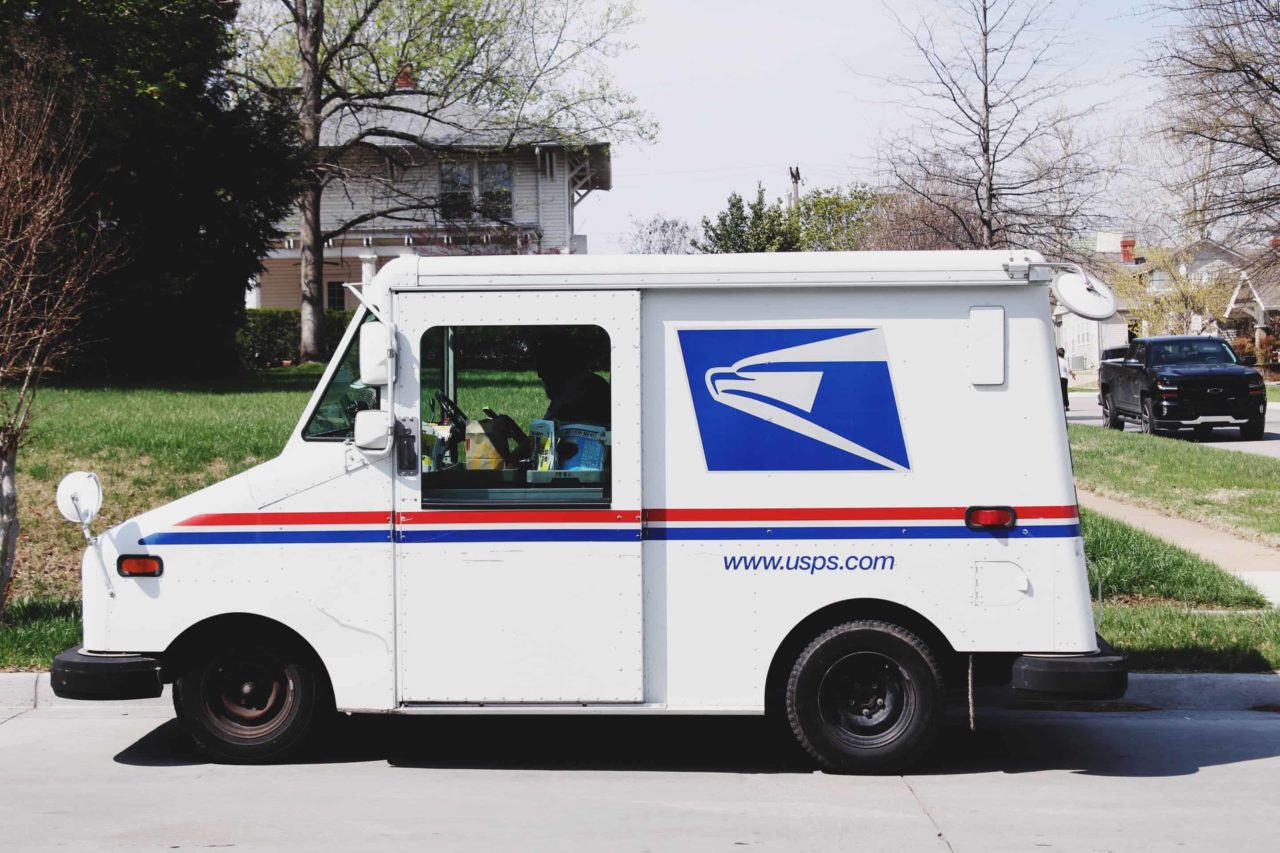
Simplify your life – have it delivered
Medical Anxiety Relief
See a Psychologist or Psychiatrist
Like I said before, there’s absolutely no shame in seeing a psychologist or psychiatrist to help you cope with anxiety. They can be extremely helpful, and are trained to assists you with your needs, just like any other health professional.
Generally speaking, psychologists engage in talk therapy and can’t prescribe medication. I think they’re great for non-disabling anxiety (if you’re anxious but still functional), and can get to know you and treat you long-term. You can even see them regularly and let them know how your life is going, and “unload” your anxiety on them (don’t worry, they’re trained for it).
Psychiatrists, on the other hand, are doctors who’ve gone to medical school. They’re probably best for severe mental illness that will require medication to treat. This is a personal opinion, but I recommend visiting a psychologist before a psychiatrist, in order to avoid getting medicated as a first-line option. If you need pharmaceutical-grade anxiety treatment, any responsible psychologist will refer you to a psychiatrist.
Other Ways to Reduce and Treat Anxiety
Meditation
If you don’t want to trust me, trust Harvard Medical School. It says that research analysis findings at Johns Hopkins University “…suggest that mindful meditation can help ease psychological stresses like anxiety, depression, and pain”. Indeed, Harvard’s Dr. Elizabeth Hogue “…found that a mindfulness-based stress reduction program helped quell anxiety symptoms in people with generalized anxiety disorder, a condition marked by hard-to-control worries, poor sleep, and irritability”.
I do mindfulness meditation, and think the easiest way to get into it is with an app. Personally, I use Headspace, where a calm teacher named Andy guides you through short exercises to ease your mind and get you into a better state. It takes as little as 5 minutes a day – give it a try, it can only help!
Here’s a short video from Andy on coping with anxiety:
Forest Bathing
Relatively new to the western world, forest bathing is a Japanese technique which can involve calm walks through forest-like environments. In fact, you don’t even have to walk, since all it really entails is “…simply being in nature, connecting with it through our senses of sight, hearing, taste, smell and touch” (Time).
Forest bathing is backed by science, as NPR explains: “[t]here’s a growing body of evidence that the practice can help boost immunity and mood and help reduce stress”.
I’ve tried it myself, and do feel much calmer when walking in the forest (especially if I don’t pay attention to my phone). So, take a stroll in the forest yourself, or even just hang out amongst the trees – it’ll probably help you find anxiety relief.
Exercise
Exercise is a classic and effective way to relieve anxiety, as I’ve found from personal experience. When I lift weights, run, or swim, not only do I get distracted and clear my mind, but I can feel the stress “breaking up” in me.
It’s not just my wacky personality – as the Mayo Clinic explains, “…working out and other forms of physical activity can definitely ease symptoms of depression or anxiety and make you feel better. Exercise may also help keep depression and anxiety from coming back once you’re feeling better”.
Specifically, it does this in at least two ways: by prompting you to release feel-good brain chemicals such as endorphins, and by helping you think about other things besides your worries (Mayo Clinic).
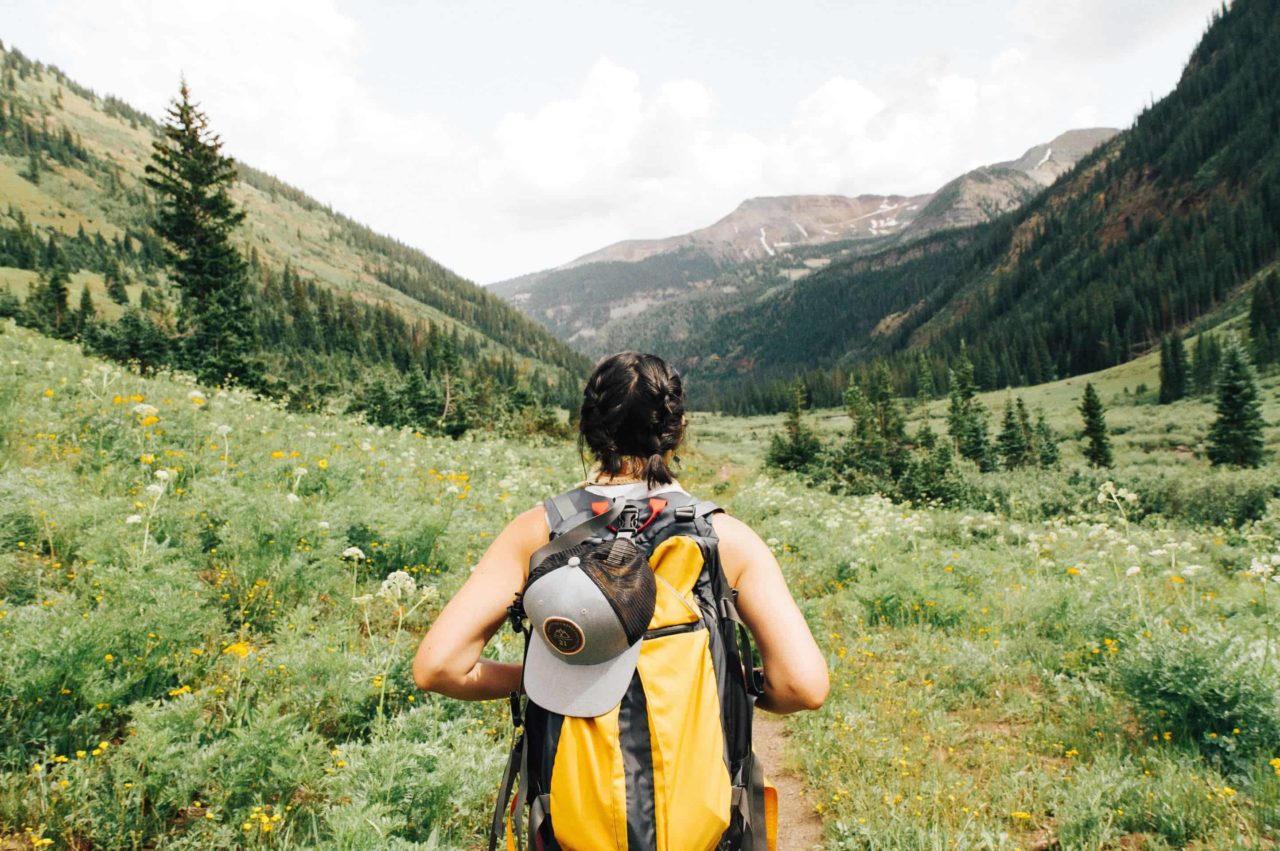
Take a hike!
Downtime
At least in my own life, I feel that being “on” all the time is terrible for my anxiety. That’s why I’m a big proponent of having some downtime each day, even if it’s just 30 minutes. We’re not machines; everyone needs a break every now and then.
Here are some good ways to wind down:
- Take a brief nap.
- Dance a little.
- Watch some great YouTube videos.
Socializing
We all know that spending time laughing and merrymaking with good friends lifts our mood and makes us less anxious, right? Yes, as I’ve experienced it, it almost always breaks the cycle of anxiety, especially if I’ve had a bad, stressful week.
To cite the scientists, per Psychology Today, “[i]nteracting with others boosts feelings of well-being and decreases feelings of depression. Research has shown that one sure way of improving your mood is to work on building social connections”.
So make some plans and hang out with your friends. You’ll be glad you did!
Listen to Classical Music
Get your Bach on. Yup, science says that classical music is good for you, since, among other benefits, it helps lower blood pressure and reduce stress, and makes you more relaxed (Reader’s Digest).
So stream that Mozart and make your life just a little bit better.
Adopt A Pet
My wife Lily and I don’t yet have live-in pets, but there’s a neighborhood cat who stops by our house almost every day (we feed him). Even with that brief interaction, I can tell you that my anxiety goes down when I see him approach our house. We’d love to adopt him, and maybe even get a French Bulldog in the future.
It’s pretty much a scientific fact that adopting a pet helps you cope with anxiety. As reliable sources say, “[t]he rise of animal therapy is backed by increasingly serious science showing that social support–a proven antidote to anxiety and loneliness–can come on four legs, not just two. Animals of many types can help calm stress, fear and anxiety in young children, the elderly and everyone in between” (Time).
Take A Vacation to Find Anxiety Relief
Ah, one of my favorite means of anxiety relief – getting away from it all for a week or two! A nice vacation can break bad mental patterns (especially if they’re work-related), and remind you of what it feels like to have more than a few hours of fun.
So take a trip and do what works for you. Experience will tell you what you like best, whether it be a cruise or hitting the ski slopes. What’s important is that you come back refreshed.
And since I like to cite sources, here’s what Inc. reported, citing studies: “…vacations work to reduce stress by removing people from the activities and environments that they associate with stress and anxiety…after taking time off from work, vacationers had fewer stress-related physical complaints such as headaches, backaches, and heart irregularities, and they still felt better five weeks later”.
Try ASMR
ASMR is this new-ish trend of exploring something called Autonomous Sensory Meridian Response. The most common way to experience it is probably by watching YouTube videos of people doing normal things (like cooking) in a very slow and deliberate way, speaking slowly and emphasizing every single detail and sound.
It’s something you have to watch to understand:
Listen, it’s definitely a bit weird. However, I can tell you that it works for me as an effective anxiety treatment, since it really calms me down and makes me feel very relaxed. At the very least, it doesn’t hurt to try.
It’s a fairly new thing, but promising research is emerging – as an article in the journal PLOS One states, “[f]indings indicate that ASMR is a reliable and physiologically-rooted experience that may have therapeutic benefits for mental and physical health”.
Get Better Sleep
As The Washington Post reports, scientists are now finding that “…overnight sleep deprivation will trigger anxiety the next morning, along with altered brain activity patterns…”. I think this makes it clear that good sleep is crucial in terms of coping with anxiety, and I say this as a lifelong insomniac who has serious trouble sleeping.
Here are some tips that have helped me sleep better:
- Try ASMR (it helps me).
- If you use your phone in bed, at least try to use a low-light mode.
- Try sublingual melatonin tablets (they’ve done wonders for me).
Bonus: Even More Ways to Find Anxiety Relief
Take Probiotics
Emerging research suggests that some probiotics may help as natural remedies for anxiety. For instance, a 2016 meta-analysis (a study of studies) concluded that some probiotics “…showed efficacy in improving psychiatric disorder-related behaviors including anxiety, depression, autism spectrum disorder (ASD), obsessive-compulsive disorder, and memory abilities, including spatial and non-spatial memory”. (National Institutes of Health).
Specifically, some of the helpful probiotics may be strains of Bifidobacterium (such as B. longum, B. breve, and B. infantis) and Lactobacillus (such as L. helveticus, and L. rhamnosus). (NIH, Healthline).
Summing Up Anxiety Relief
There’s a lot of ways to become less anxious, aren’t there? From the natural remedies for anxiety to using technology to our advantage, there are many things we can do to find anxiety relief and dramatically improve our lives. Most are free and take little effort to implement. So, let’s get on the road to better living today!
What are your preferred ways of coping with anxiety or finding anxiety relief? Do you have any favorite natural remedies for anxiety?
Last updated on 2/24/2020.
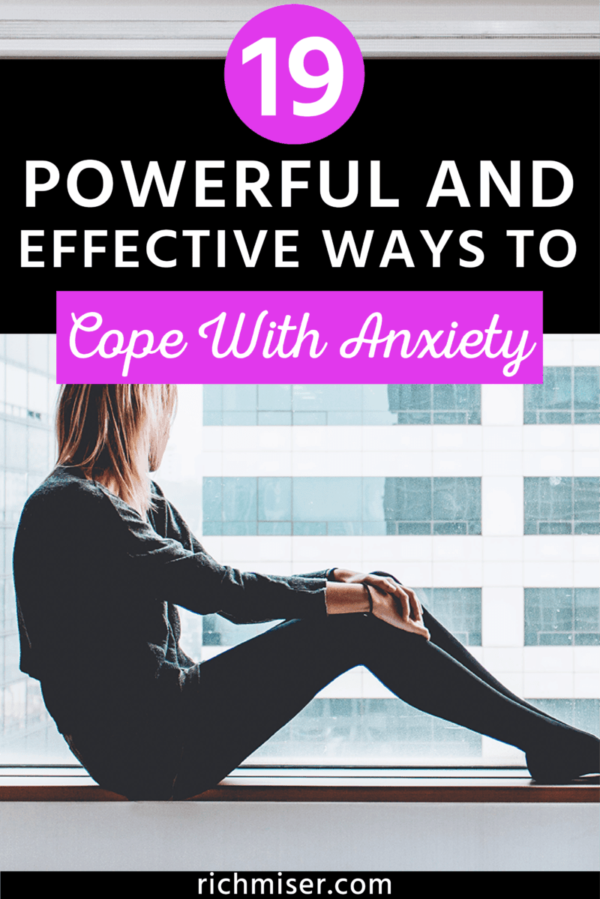
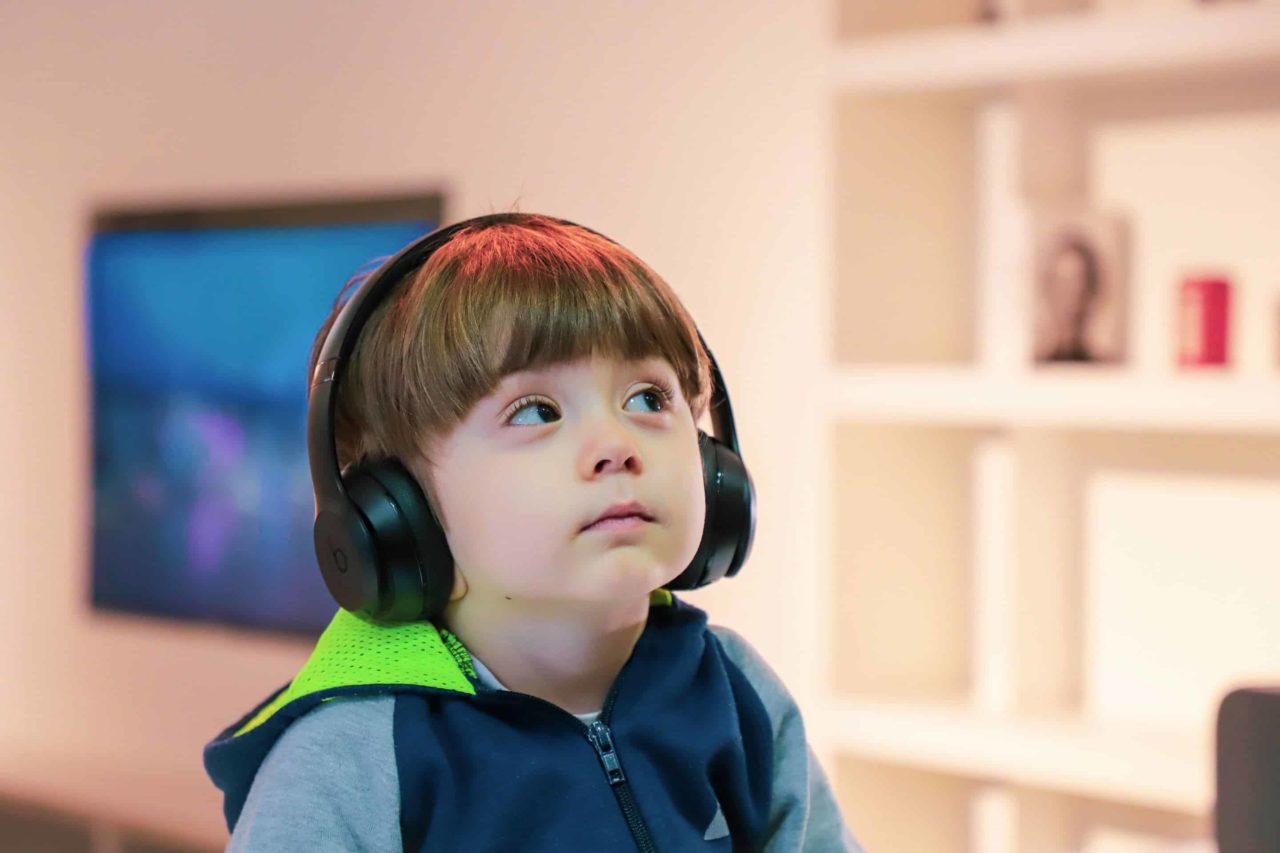

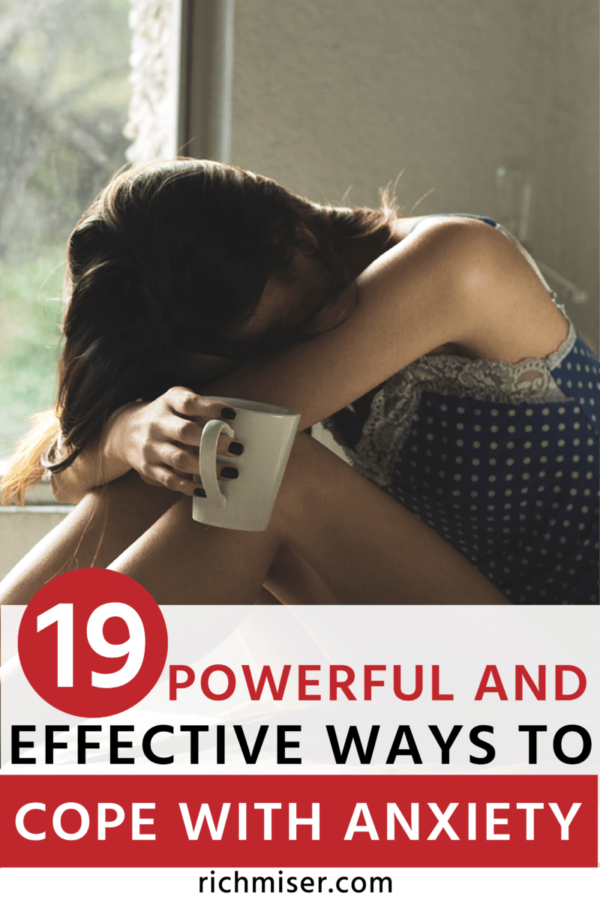
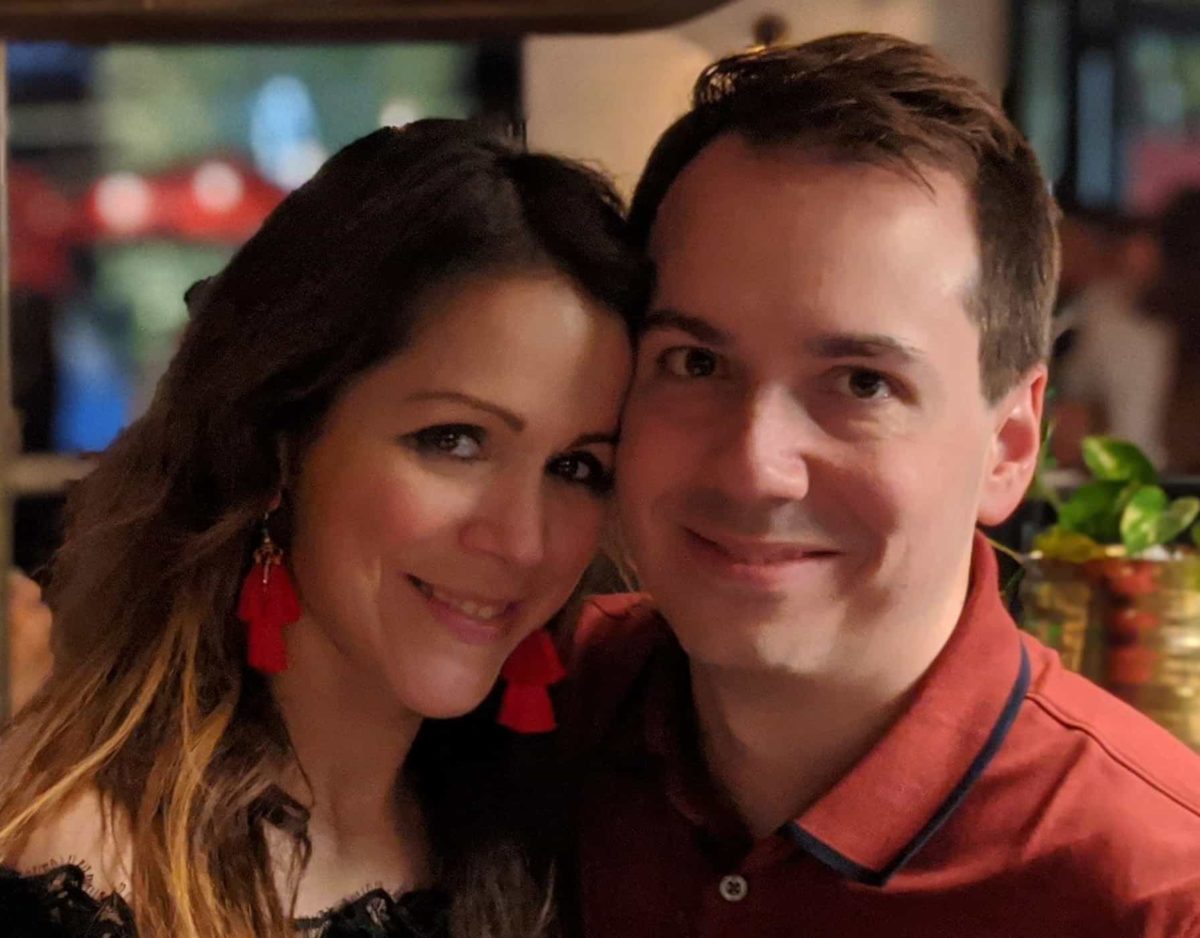
Miguel: Simply excellent, and very helpful no matter your line of work!!!
Thank you!!! 🙂
Yes. Very good advice Miguel. I’m pretty anxious in general. Most of mine stemmed from my past full time career. It can still creep into other areas of my life if I’m not mindful about it. I think a lot of the population struggles with stress and worry leading to anxiety and you have many good tips here. Tom
Thanks Tom,
Yes, anxiety seems to be running amok nowadays. I really hope the tips help others, as they have helped me 🙂
For me “Control Your Smartphone” and “controlling Social media activity” are best ways! By the way, the list is impressive. Thanks for the article.
Agree with Millionaire Mob, it would be helpful for many millenials to socialize not only on social media but also in real life, sometimes technology takes us apart from the real world. Not only this applies for millenials but also from other adults. Maybe it can be added from the list. Nice topic and great article!